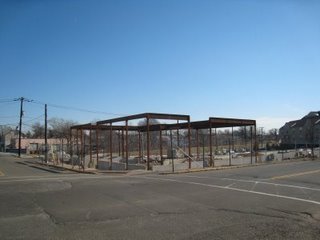News that the Plainfield City Council last month was asked by the administration for a five-year, 40-percent tax abatement for a Dornoch project in that city has prompte d questions from readers in recent weeks about whether the Hillside-based developer will seek the same for The Savoy on Main Street. (The Plainfield governing body was scheduled to entertain the measure at its meeting last night.)
d questions from readers in recent weeks about whether the Hillside-based developer will seek the same for The Savoy on Main Street. (The Plainfield governing body was scheduled to entertain the measure at its meeting last night.)
City Administrator and Redevelopment Director Peter Pelissier said Dornoch had requested abatements in negotiations this past summer, but he said he rejected it, with no plans to entertain the idea.
The only recent tax abatement awarded by the City Council was about five or six years ago when Park Square was still just on the drawing board. Landmark Developors will pay 20 percent of the assessed value of the property in the first year it’s on the tax rolls (2009), and 20 percent more each year until 100 percent is reached. Pelissier said the city tax assessor is in the process of compiling the first assessment for the property, which would mean it would be paying 100 percent property taxes by 2013. The project broke ground in 2007 after several years of land acquisition and other work for the development.
Also, this interactive map from P and F Management (a subsidiary or parent entity of some kind for Dornoch and its projects) is another indication that The Savoy may become rentals, something with which the city probably would not have a problem considering the real estate market and other projects going rental.



Wow – Skyview trying to rent its unsold inventory, Park Square rentals coming on line, and now the Savoy turning to rentals (along with other development out there). Rahway is still pretty empty downtown — looks like there will be a glut of available rentals in Rahway for a while, which should hold down rents.
Plainfield City Council pulled the administration's request off the agenda. The residents are very upset that the mayor is working hand in hand with the developer to try to give tax breaks to potential newcomers as local residents' taxs continue to rise. In addition, if this residential (NOT commercial!) tax abatement is granted, the shortfall will have to be made up with an increase in–you guessed it!–an increase in the taxes for the rest of us!